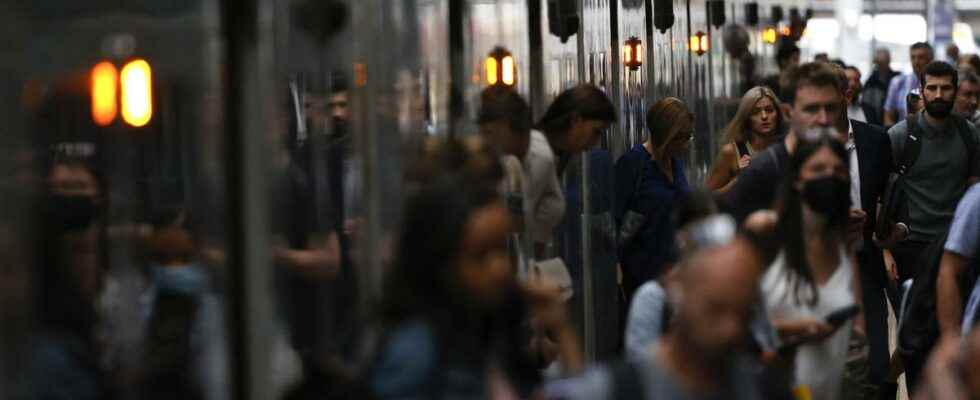Employees are demanding wage increases in line with the price increase, which in July reached 10.1% over one year across the Channel.
Railway workers, postmen, dockers: the United Kingdom is experiencing its worst strikes in decades with a new salvo starting this week for better wages in the face of soaring inflation and melting purchasing power. On Thursday and Saturday, tens of thousands of British railway workers were called to stop work by the RMT, TSSA and Unite unions, a new episode in the biggest strike in 30 years in the sector, which began at the end of June.
During this school holiday period, Network Rail, the public manager of the network, warned that only one in five trains would run, calling on the British not to travel “only if absolutely necessary“. On Friday, the entire London transport network will be almost paralyzed, and will remain very disrupted throughout the weekend.
On Sunday, dockers at the port of Felixstowe (east of England) – the largest for freight in the country – start an eight-day strike, threatening to shut down much of the country’s freight traffic.
SEE ALSO – Inflation: Bank of England sees recession approaching
Inflation of 10.1% over one year
Everywhere the watchword is the same: employees are demanding wage increases in line with inflation, which reached 10.1% over one year in the United Kingdom in July and could exceed 13% in October, according to the Bank of England forecast. Purchasing power is being eaten up by price increases at record speed, which “demonstrates the vital need (…) to defend the value of workers’ compensation“Assures in a press release Sharon Graham, general secretary of the Unite union, one of the main in the country.
Read alsoHistoric inflation pushes Britons into debt
At the call of the sectoral union CWU, more than 115,000 British postal workers have planned four days of walkout between the end of August and the beginning of September, and some 40,000 employees of the telecom operator BT will continue their first strike in 35 years. Actions are planned or have taken place in Amazon warehouses, among criminal lawyers or among garbage collectors.
“Employers are doing what they can to help their staff through this period“, assured Tuesday the employers’ union CBI in a press release. “But a large majority cannot afford to raise wages enough to keep up with inflation“, he argued.
However, some strikes have recently been avoided at the last minute, following compensation offers deemed satisfactory. This is the case of employees of a refueling company at Heathrow airport, who threatened to disrupt traffic and finally gave up the strike. British Airways ground staff, who demanded at least the restoration of wages cut by 10% during the pandemic, accepted a 13% increase and lifted the strike.
Use of temporary workers to replace strikers
If the railway workers continue their movement on Thursday, it is because negotiations with the multitude of private operators in the sector are at an impasse. They also rejected a salary offer from Network Rail which they accuse of being conditional on massive layoffs.
The Minister of Transport, Grant Shapps, who refused to get directly involved in the discussions, is singled out by the organizations, accused of not giving sufficient mandate to the companies to negotiate.
Read alsoRecord fall in UK real wages due to inflation
Another reason for union anger: the government has just amended the law to allow the use of temporary workers to replace strikers. The famous London luxury department store Harrods has been “the first employer to threaten its staffto make use of this law, while some employees are currently voting for a possible strike, according to Unite.
The movements could last beyond the summer, and also extend to civil servants in education or even health, where the union has tackled salary offers “miserable” of 4%.
